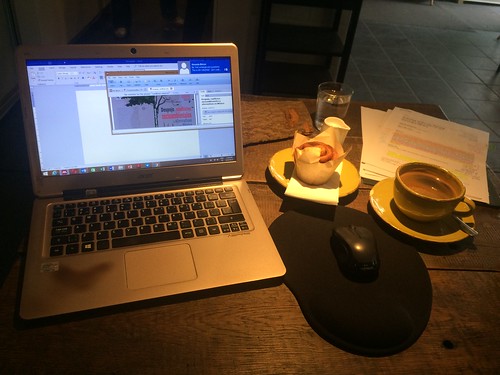I have always considered myself a methodologist, and someone with a slight obsession with methods. I write about research methods here on my blog, I’ve edited a methods journal (International Journal of Qualitative Methods), I’ve published several scholarly pieces (book chapters and articles) on methods, and this fall, I taught several courses on research design, comparative methods, qualitative methods and thesis writing.
Along the same lines, since Fall of 2020, I joined a Methods Lab (led by the amazing Dr. Rodrigo Salazar Elena, dear colleague and friend of mine at FLACSO Mexico). Thus it should not come as a surprise that I have the following three hot takes:
Super hot take:
We should NOT assume graduate students know ANYTHING about research design, research methods, methodology or the mechanics of doing research even if/when they get accepted to a graduate program.
That is, don’t assume undergraduates know how to do research.
— Dr Raul Pacheco-Vega (@raulpacheco) July 23, 2020
I am seriously amazed at how many faculty assume their students know how to do a lot of things that they do not because they were not prepared nor taught. Neither my Twitter thread nor this blog post offer criticism of students, but more a concern with undergraduate and graduate programs where rigorous research desig and techniques are not taught or poorly developed.
Often times, we need to take students at their most raw and take them from zero to hero. Thus, I encourage all instructors to be KIND and GENEROUS with students admitted to graduate programs who may not have the research skills you may have expected them to have. Make graduate programs equalizers and skills developers. A gradual approach to teaching them how to do research may work best.
Even hotter take: you should NOT assume that graduate students who are doing their degrees in a foreign language know the rules and norms of conducting scholarly research in English.
There’s a hidden curriculum beyond what is new to first generation students. Never forget it. I find it super, super wild that scholars who discuss the hidden curriculum (about first-generation students in the United States of America and Canada) often do not seem to bring to the conversation the differences across cultures. There are hidden curricula all over the world.
Many students from countries or cultures where challenging the authority is not the norm may find it hard to enter “discussion groups” or to challenge a professor/doctoral supervisor. Also, writing norms and expectations (and grammar and structure) vary wildly across languages.
I have an even SPICIER take: By saying “send me/us your BEST students”, you are in fact reproducing the cycle of inequality and further marginalizing scholars who may have great potential but lack the training that others with more privilege have had.
Think about this.
I’ve written about this quite a lot https://t.co/WiqbcrCMY1
And I am grateful to (among many others) @jessicacalarco @gretchensneegas for speaking out about the #HiddenCurriculum
As anybody who follows me knows, I harp about this topic All The Time. Even more frequently…
— Dr Raul Pacheco-Vega (@raulpacheco) July 23, 2020
… when I have to craft a new syllabus for research design or research methods.
I write my blog for my students, although I DO come back to my own posts for advice on how to do specific things. And I also write my blog for those who have not had the mentorship they deserved. Institutions and faculty need to do better by their students. It’s our job but also our duty.


0 Responses
Stay in touch with the conversation, subscribe to the RSS feed for comments on this post.